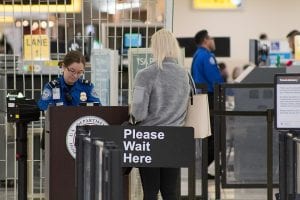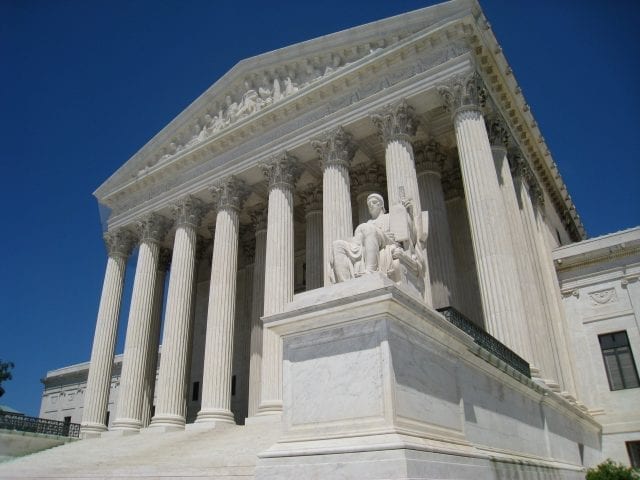Muhammad Tanvir says FBI agents wouldn’t let him board a flight to visit his sick mother in Pakistan, telling him they’d only pull his no-fly status if he agreed to spy on fellow Muslims.
On Tuesday, the Supreme Court heard arguments from three Muslim men who claim they were put on the no-fly list after refusing FBI requests to spy on other worshipers.
The men are attempting to hold each agent personally responsible for damages. However, employees of the federal government are typically shielded from civil litigation resultant from actions undertaken in the course of their ordinary duties.
According to The Hill, the legal question the justices are now trying to tackle is whether federal officials can, in fact, be sued if they knowingly violate an individual—or individuals’—rights to religious freedom.
In 2014, three men—identified as Muhammad Tanvir, Jameel Algibhah, and Naveed Shinwari—were placed on the federal government’s “no-fly list.” The list, which saw increased use following the September 11th attacks, is supposed to prevent potential terrorists from traveling by air. In reality, though, the list’s criteria and rationale are somewhat opaque. Thousands of Americans, including elderly adults and toddlers, have been designated as no-fly threats; more often than not, they are left with little recourse and limited opportunities to appeal their status.
“Federal agents put my clients on the No-Fly List because they refused to spy on innocent coreligionists in violation of their Islamic beliefs,” attorney Ramzi Kassem told the Supreme Court on Tuesday. “My clients lost precious years with loved ones, plus jobs and educational opportunities.”

Tanvir says his unexpected addition to the list forced him to quit his job. As a long-haul trucker, Tanvir often flew home after making cross-country deliveries—but was unable to do that after the government told him he was not allowed to fly.
Being on the no-fly list also prevented Tanvir from visiting his ill mother in Pakistan for years.
All the while, Tanvir says, he was confronted by FBI agents who told him he would be removed from the no-fly list on the condition that he agree to work as an informant.
Collectively, Tanvir, Algibhah, and Shinwari say FBI agents’ decision to retaliate against them for noncooperation runs afoul of a 1993 law known as the Religious Freedom Restoration Act, or RFRA.
The RFRA, says The Hill, generally prevents the federal government from placing a “significant burden on the free exercise of religion.” The law also provides avenues for “appropriate relief” against the government in case of violations.
However, the statute does not specify what, exactly, constitutes “appropriate relief,” and it is not apparent what Congress intended such a stipulation may entail. To that end, Department of Justice attorney Edwin Kneedler—who is representing the federal government—said any precedent allowing individual agents to be sued raises a “concern about chilling government employees, especially in this national security context.”
So far, it appears that the high court’s justices have yet to reach anything resembling a consensus.
Justices Sonia Sotomayor and Neil Gorsuch have so far interpreted the passage on “appropriate relief” liberally, with Sotomayor questioning why Congress would “take away from ‘appropriate relief’ the only relief that could help some people for the violation of their rights?”
Gorsuch, similarly, said that courts may “provide any kind of relief available, appropriate to the circumstances.”
But other justices—including Elena Kagan and Brett Kavanaugh—were fazed by the statute’s ambiguity, with Kavanugh noting that the law “does not, of course, say ‘appropriate injunctive relief.’”
Kassem, though, said there is no other way for his clients to win relief than to be permitted to pursue the FBI agents who targeted them.
“Without damages as a deterrent, [these and other agents] remain free to repeat what they did here, flout RFRA until challenged in court, and then back off,” Kassem said.
Sources
At Supreme Court, a Case on Abuse of the No-Fly List
Supreme Court Hears Case of Muslims on No-Fly List
Supreme Court hears Trump appeal over Muslims put on ‘no-fly list’ for refusing to spy


Join the conversation!